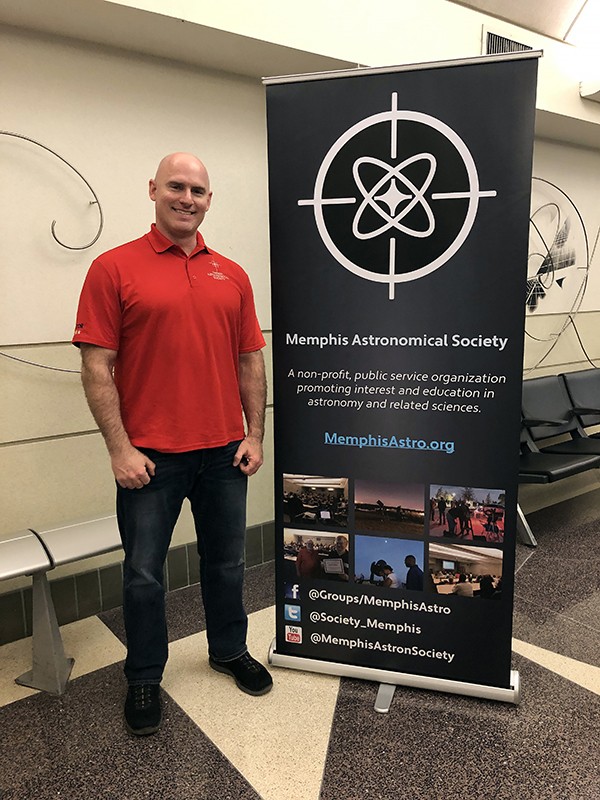This space — the Letter From the Editor column — has for decades been the home of opinions and stories from (you guessed it) the editor of the Memphis Flyer. We’re in between editors at the moment and Flyer staffers have divvied up the responsibilities of that task, including the writing of this column.
My work has appeared in almost every section of this fine paper over the years, but never here. I don’t have an opinion when I’m on the clock. No reporter should. This works out because sometimes I have dumb opinions. Sometimes things don’t make sense to me and when I say what I think out loud (usually only to my wife), it sounds Jurassic.
I listen better than I speak. I try to empathize better than I criticize. But I know for sure that I learn better than I opine. Learning is usually the cure for whatever dumb opinion I have. So, when this space is mine, I’m going to learn, seeking counsel from some of Memphis’ brightest minds. I hope you’ll learn along with me.
My first dumb opinion here: The $10-billion James Webb Space Telescope is a waste of money. (Can’t you just hear how dumb that sounds?) The price tag only bothers me when I think about how else that money could have been spent. This attitude to space stuff was most certainly inspired by this verse from Bob Marley’s “So Much Trouble in the World.”
“You see men sailing on their ego trip,
Blast off on their spaceship,
Million miles from reality
No care for you, no care for me.”
I bet teachers across America could think of way better ways to spend $10 billion than pointing a camera into space for a look back billions of years. When you’re driving on some of Memphis’ potholed streets, do you ever think, “Man, I wish we had a closer look at the galactic cluster SMACS 0723?”
Again, this is (probably) a dumb opinion. So, I turned to Jeremy Veldman, president of the Memphis Astronomical Society.
Memphis Flyer: What is the Webb Space Telescope going to do for us, as a planet, I guess?
Jeremy Veldman: [It will answer questions] not only about the origins and evolutions of the first galaxies and stars in our universe, as well as the composition of atmospheres around distant exoplanets to see if they could possibly be habitable, but I think what’s more exciting is it could possibly answer questions that we haven’t even thought of yet.
I’ll give you one example. Thirty years ago, when [the Hubble Space Telescope] was launched, we knew that the universe was expanding, going all the way back to the late 1920s and Edwin Hubble. But we didn’t know if the universe was going to expand forever or maybe slow down and contract back on itself.
What came out of the Hubble Space Telescope is that we discovered that the universe is not only expanding but it’s accelerating in its rate of expansion. Completely counterintuitive. We live in an expanding, accelerating universe. That was something that scientists did not even expect and it came out of research from Hubble.
So, what I think is exciting to me is that in the next 25 to 30 years, [the Webb telescope] could possibly answer questions that we haven’t even thought of yet.
What would you say to people who say that $10 billion is a lot of money to spend on something like this, something that might not have everyday, applicable uses?
It’s a legitimate question. I would say that what’s going come out of that $10 billion is years and possibly decades of research that will not only help answer questions about the cosmos and our place within the universe and our significance in it, but also stimulate a lot of curiosity and, ultimately, wonder. As the great Greek philosopher Socrates said in antiquity, “Wonder is the beginning of wisdom.”
So, when you have young people seeing this and getting exposed to it, that could be something similar to the way I was when I was a young person, seeing these discoveries, wondering, having curiosity come out of it and then putting them on a linear path to do work, to do research, to pursue a career path, and to avoid anything toxic.
They can work hard, get educated, become a functional member of society, and possibly pursue a career in the sciences and maybe be instrumental in working on the next generation of technology, whether it’s another James Webb that comes up later down the road or some other field of science.
Toby Sells
The Memphis Flyer is now seeking candidates for its editor position. Send your resume to hr@contemporary-media.com.

 Jeremy Veldman, MAS
Jeremy Veldman, MAS